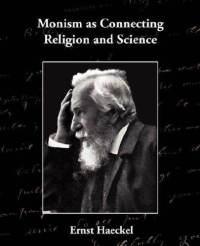A place for everything and everything in its place. This is not just a mantra for those with obsessive tendencies. It also describes the drive that some have toward a system: a unified theory of everything.
Before the Enlightenment, there was no need for such a theory. God served this purpose and everything was explained by the bible or theology. After the Enlightenment, philosophers began searching for the all-encompassing meta-theory. This search culminated in the gargantuan philosophical systems of Kant and Hegel.
Famously opaque, such systems betray a profound uneasiness with the messiness of the world and disorder of experience. Some people are comfortable with ambiguity, unintelligibility, and inexplicability. Others can’t tolerate contradictions, counterfactuals, and incompleteness. The latter, filled with insecurity, construct systems to compensate. It was this fact which caused Nietzsche to comment: “I mistrust all systematizers and I avoid them. The will to a system is a lack of integrity.”
While philosophers have largely given up on the idea of unified system, physicists haven’t. They are tying themselves in knots over string theories and imagining new universes whenever the tautology of math demands it. Only Neil deGrasse Tyson seems comfortable with the idea that there is one theory for big things and another for little things. The theories aren’t compatible but each works in its spatial arena. Does it really matter if the twain shall never meet?
Physicists are not, however, alone in this quixotic quest. There are some who believe that everything can be explained as a matter of evolutionary theory. Although evolution sensu stricto is a biological theory, there are some who see it as much more: a unified theory of everything. In a recent post I noted that because cultures are not organisms, extending evolutionary theory to everything is dubious and amounts to “Darwinian monism.” While this monism may satisfy the impulse to a unified system, it doesn’t work (even if the equations which purport to describe it “prove” that it does).
The Wilsons, Edward Osborne and David Sloan (no relation), weren’t the first evolutionists to espouse monism. Ernst Haeckel (1834-1919), the famous German naturalist, preceded them. In “Ernst Haeckel’s Monistic Religion,” Niles Holt describes some familiar sounding aims:
Haeckel presented Monism as a scientific movement which was based on Darwinism and which aimed to free science from the bonds of “dualistic” Christianity, “metaphysics,” and all “irrationality.” Supplementing the antireligious tenor of much of Haeckel’s writings was his assertion that natural science encompassed the totality of valid knowledge, that, as he later phrased it, “scientific research captures gradually the entire province of human intellectual effort.” In Anthropogenie (1874), Haeckel argued that the new theory of evolution was a “most favorable development to the growth of scientific unity.”

Having ushered metaphysics and religion from the scientific room by way of the front door, Haeckel promptly let them in through the back. The inexorable logic of monism or a unified theory demanded it:
Haeckel asserted that the irritability found in all organic matter progressed through evolution into the consciousness and organization of the human nervous system, the brain. This argument was the basis of Haeckel’s “chain of unity of sensation”: evolutionary history had proceeded from the “cell-soul” through “intermediary steps” to the “rational” human soul. The “chain of unity of sensation” were viewed by Haeckel as demonstrating that “natural science and evolutionary theory” were not to be used to degrade nature into a “soulless mechanism” which would “bar all ideals from the real world and destroy poetry.”
Haeckel believed that Monism had established that the soul of man was a “purely mechanical activity.” Yet he wished to avoid, through pantheism, a “depressing materialism which reduced the universe to “dead matter.”
As he aged, Haeckel’s monistic ideas — always centered on the unifying logic of evolution — became increasingly elaborate and obscure. More than a few German intellectuals found the ideas attractive and sought to found a new “religion” on them. Although Haeckel disapproved of these efforts, which often involved ritual adornment and celebration of “unified scientific knowledge,” what had begun as strict monistic materialism grounded in evolution ended as another form of metaphysics or religion.
There is a lesson here for all systematizers.
Reference:
Holt, Niles (1971). Ernst Haeckel’s Monistic Religion Journal of the History of Ideas, 32 (2), 265-280 DOI: 10.2307/2708280



